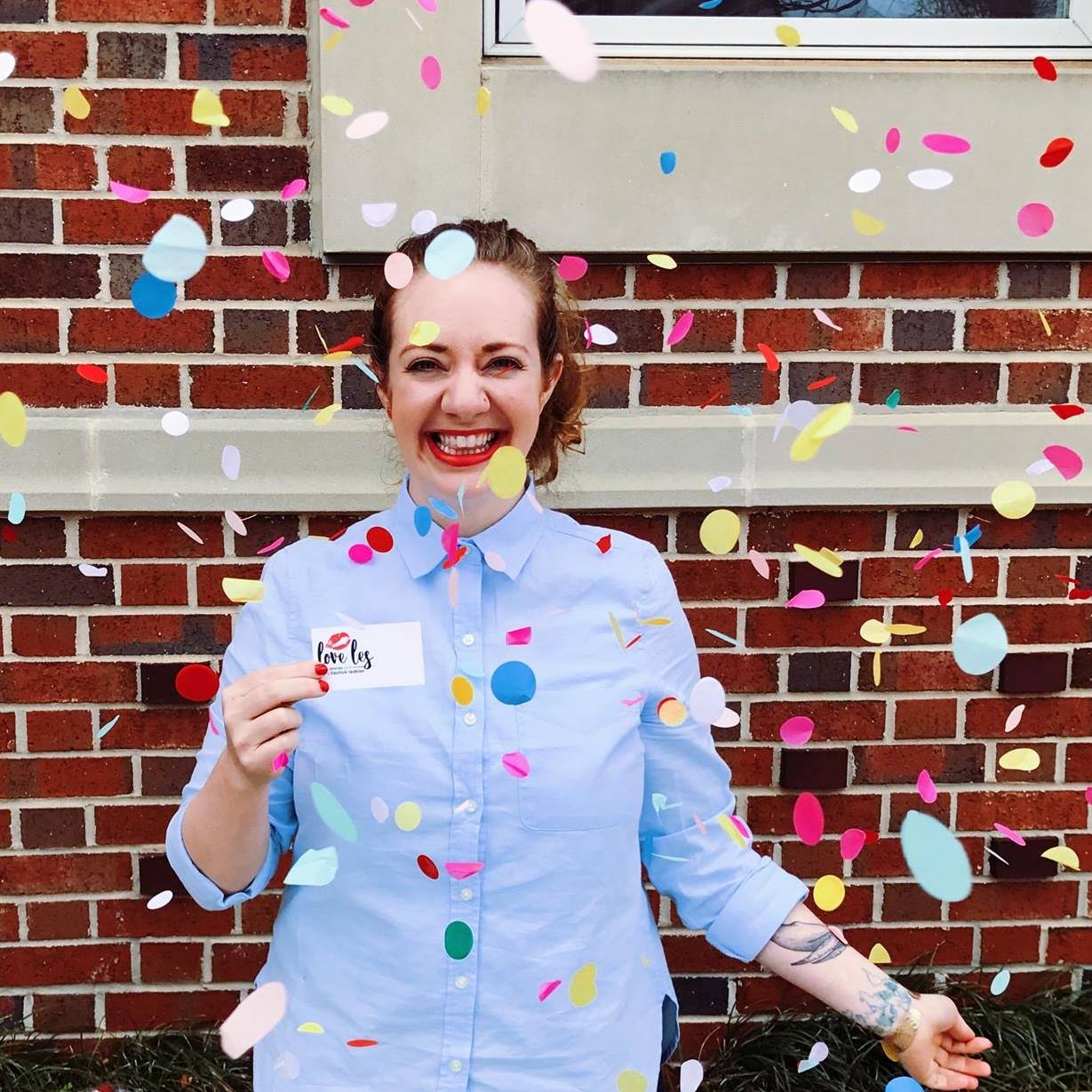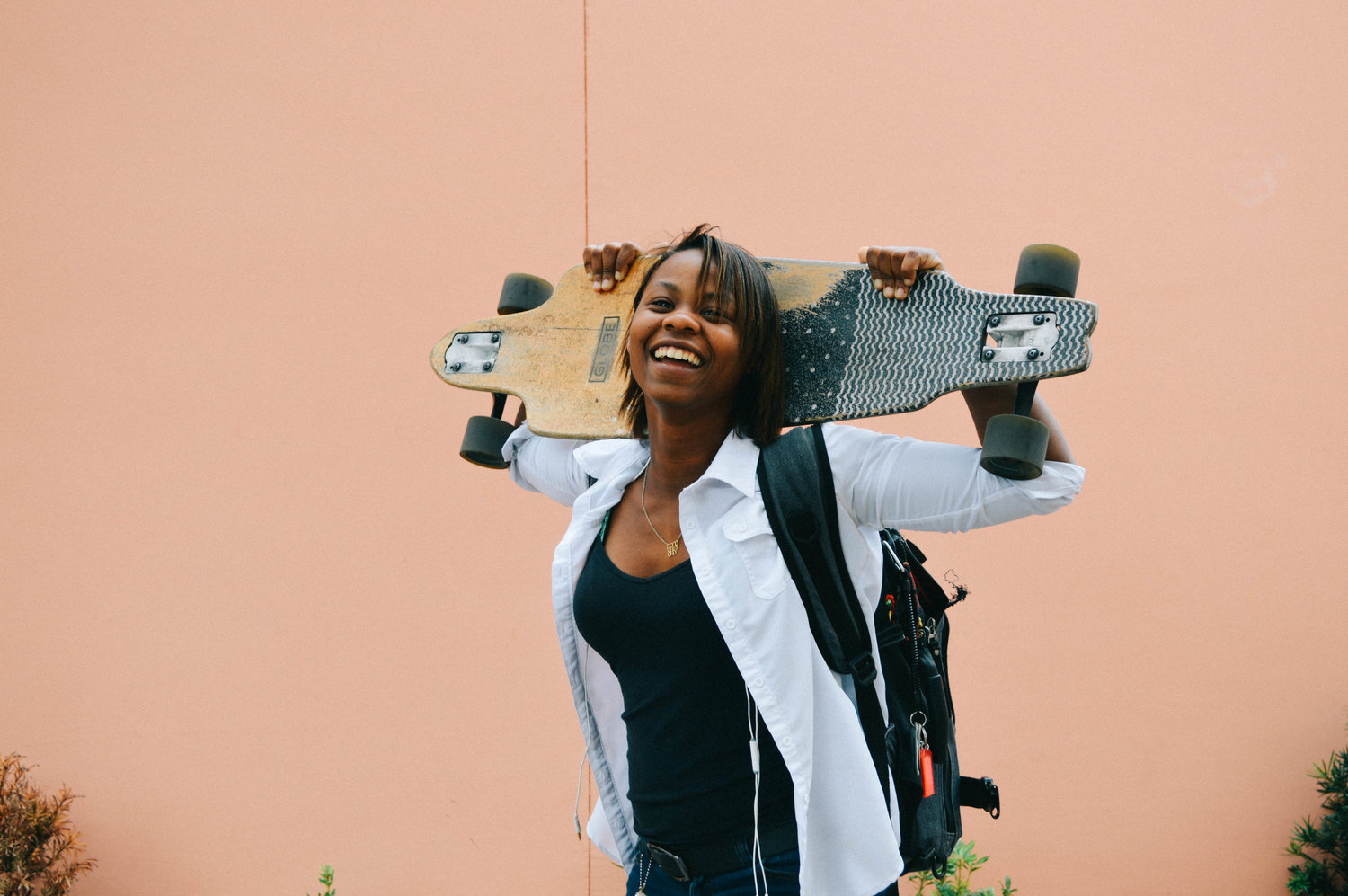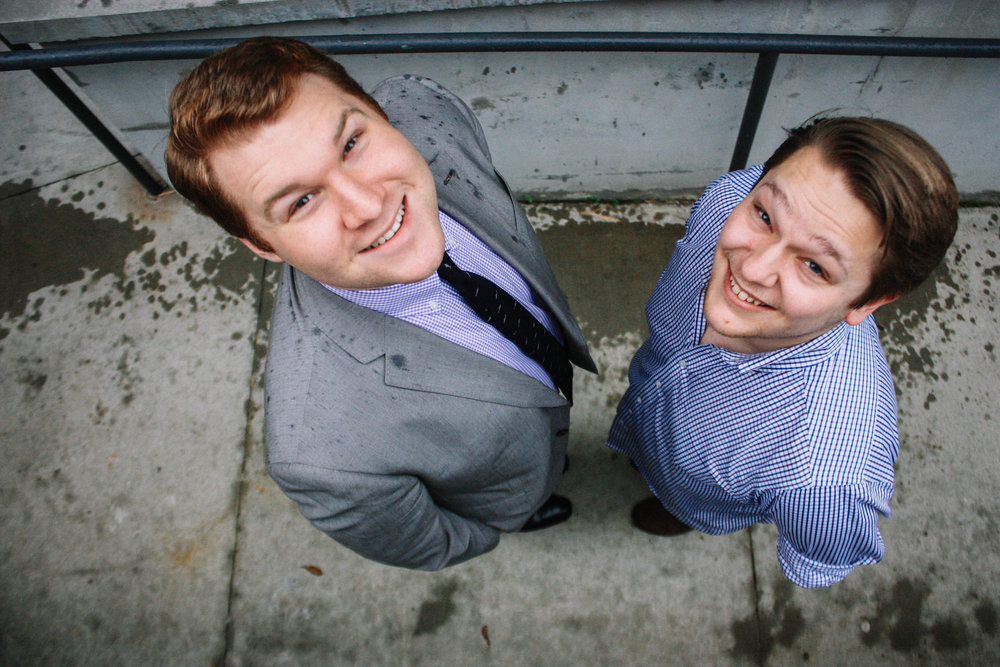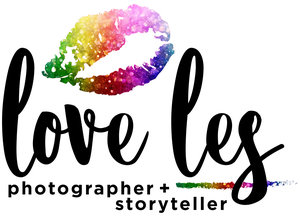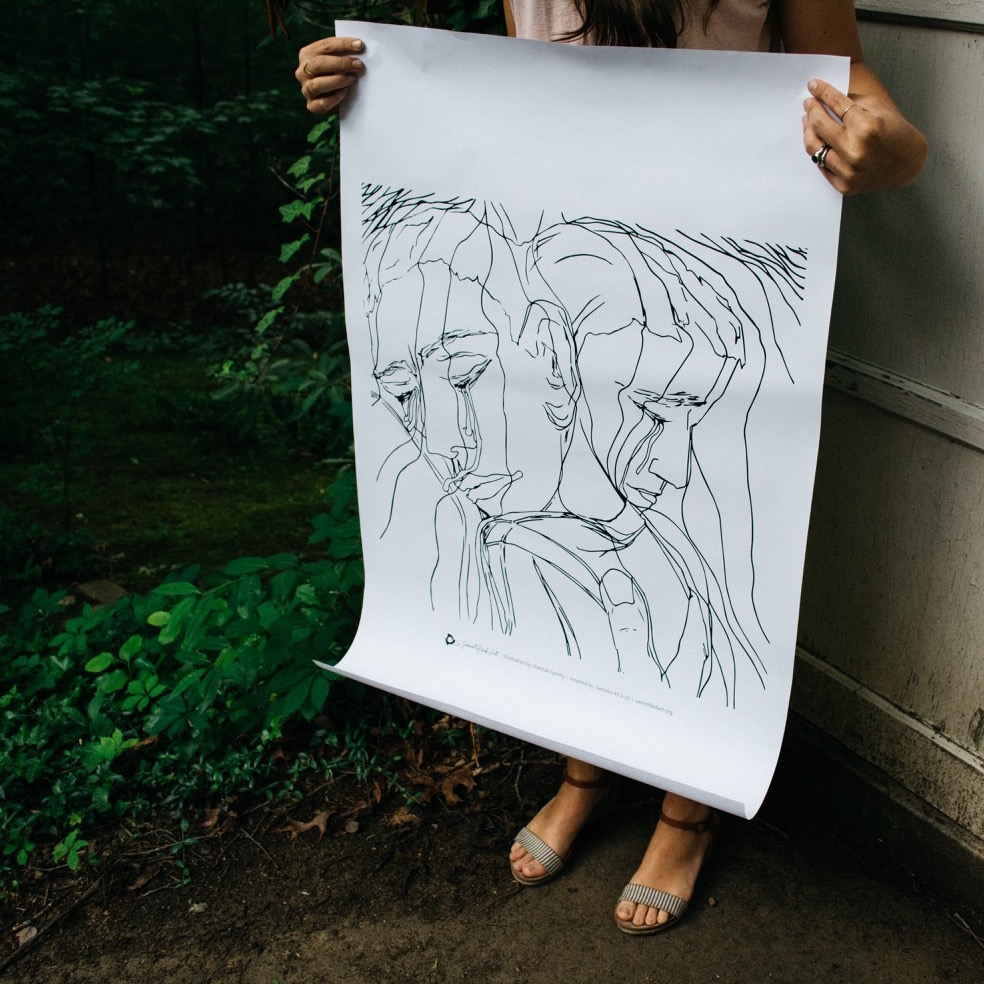"Coming Out As Myself"—WholeheARTed guest, Leslie Cox
A wholeheARTed life integrates all the parts of who you are so that you might welcome each day with courage and compassion, giving your whole heart to God, self, and others. Leslie Cox, our WholeheARTed guest this week, shares about her journey of becoming, of living into all that she was created to be. She cannot separate her creativity from her sexuality, her ministry from her love for storytelling and photography. Her journey reminds us all of what it means to navigate critique, vulnerability, and authenticity to truly come home to yourself.
In addition to being a talented photographer and curator of love stories, Leslie happens to be our colleague at Columbia Theological Seminary and a dear friend. We're grateful for the ways Leslie has already collaborated with us by being featured in our Brokenness Film, "Back to Back." Read more about Leslie's creative journey and ministry below.
SA: When did you first consider yourself an artist or creative person?
LC: I was in preschool the first time I considered myself an artist. Our school was holding an art contest. In preschool, an art contest looked more like drawing on a coloring page, but still, I thought it was a huge deal! I remember being so anxious and self-conscious as I started my coloring sheet. I just remember that I kept whispering to myself, "Color within the lines!" The image was of two flowers with a cloud above them. I took some pretty risky creative endeavors and turned the clouds into rain clouds and free-handed raindrops. I’m not sure if it was my enthusiasm or coloring skills, but I won and it was the best day of my entire life. I was an artist!
While I hesitantly claim the title "artist" these days, I often think back to that day and recall my sureness of my ability. I love watching children create—they beam without hesitation, eager to show off their work to anyone and everyone. As adults, I think the title “artist” is harder to truly believe in. Creating is this crazy vulnerable thing, and while the world can offer you endless affirmation, one negative critique can be all it takes to confirm that you are really not an artist after all. Throughout my years, I have started so many projects without ever completing them, terrified to reveal my work. Thankfully, Love Les has served as my re-entry into the art world, and for the first time, my own voice is the only one that matters. I love the space I have created. I love the stories I get to hear. And I love the people I have encountered.
Portraits and people featured on Love Les: A Home For Queer Stories by Leslie Cox
SA: Tell us about the art you create or how you express yourself creatively.
LC: Right now art looks like writing and photography. I think I’ve always loved to write—poems, short fiction, autobiographies, even academic papers. It’s amazing to think we can string letters together and create vivid paintings and images with our words alone. Photography is something new for me. I’ve always had this keen interest in it, and I even went to art school for a semester for photography, but I always counted myself out before I ever engaged it. I was my own worst critic and thought I couldn’t be a photographer, only an admirer. Love Les has been the perfect medium to practice a new form of creative writing and publish some of my photography.
SA: What is your creative process like?
LC: My creative process has been closely tied to my coming out process. It’s been so fascinating to watch the unfolding. When I came out, it wasn’t simply a matter of my sexuality; after years of suppressing my authentic self, I was finally coming out as myself. So coming out meant coming out as an artist, coming out as a writer, even coming out as a sensitive human being. These were always things that I self-identified with in my own private mental spaces, but once I started to admit them and come out in just one of these ways, everything else tumbled out as well.
“When I came out, it wasn’t simply a matter of my sexuality; after years of suppressing my authentic self, I was finally coming out as myself. ”
SA: What does fear look like for you and how does it show up in your creative process?
LC: As I mentioned, in college I started out at an art school. I dropped out after just one semester. I couldn’t handle it. In the majority of my classes, we would continually have to share our work with our peers and we would critique each other’s finished products. I cried after every single session. I never understood why I felt so uncomfortably exposed. My work was generally in the top three pieces and chosen for exhibits. Even then, I felt like a failure and a fraud. I think at the time, I struggled with such high anxiety I couldn’t understand myself. There was nothing in me that delighted in the idea of going up before a crowd and being exposed, even if exposure took place by presenting a drawing or photo. So after a semester of sleepless nights, endless tears, and refusing to see any of my work in exhibits, I dropped and stopped photography altogether. I was way too exposed in art school and I wasn’t ready to really figure out who I was as a person. So I hid this crazy beautiful part of myself. I couldn’t even hold a camera without feeling anxious, so I stopped telling people that I liked photography and packed my camera away for years without ever taking it out.
SA: How do you push beyond fear and self-doubt when they emerge during the creative process?
LC: I honestly can’t take credit for pushing through my fear and anxiety. I have had the most incredibly supportive friends. When I started off at seminary, I made the mistake of hanging up some of my old photos in my room. I thought that I would be the only person to see them so I wouldn't be known as a photographer or creative type. My plan didn't work. I met the most affirming person and I let her in. During my first year of school, every time she came into my room she would walk around and compliment the pants off of me and my photos and drawing, even my room decor. She would affirm my talents and really encourage me to get back in the art game. She saw this creative part of me that I couldn’t even see yet. I still struggle with fear and self-doubt. Before every interview, I think about canceling. No one would ever know and I could just lie and make up an excuse and not go through with it. For me, overcoming self-doubt looks like community. I've learned to call friends and my partner before any and every creative process. I am a huge fan of affirmation and encouragement from others. It's done wonders for me.
SA: How is your creativity connected to your faith?
LC: For me, art is my ministry. I really enjoy both preaching and pastoral care, but I’m not sure my calling is to be a pastor. It’s been a long process explaining my call to ministry, but not to church leadership. Right now, my blog is my ministry of testimony. The intention of Love Les is to create a space for queer folk who typically don’t have a lot of safe spaces in our culture, especially in our churches. I want the individuals I interview to have the space to tell their stories and feel heard and celebrated. So I sit with these people, often strangers, for an hour or so, and just simply listen to whatever part of their story and testimony that they want to share. I record the session and later transcribe it to make sure that I am accurately depicting their authentic words and truths. Before I run the feature, I send a rough draft back to the individuals I am interviewing. The entire process is about them, their story, their lives, their voices. So Love Les is a creative ministry whether or not I talk about faith at all during the whole process.
Portraits and people featured on Love Les: A Home For Queer Stories, by Leslie Cox
SA: How does creativity/art lead you to wholeness?
LC: This is such an important question. Art has helped me experience both wholeness and happiness. Occasionally I’ll still hear the voice of my own self-critic. She’ll show up unannounced and persist until her whispers become unbearably loud. While I used to count myself out before I even began, I’ve found the more I trust in myself and whatever I create, the quieter that voice of self-doubt becomes. Art has helped me feel complete in ways I didn’t know I was missing. Whenever I feel off, sad, or anxious, I grab a pen, a camera, a paintbrush—anything, it doesn’t matter—and I channel whatever I’m feeling into some form of art. In the end, I’m always overwhelmed with how satisfied I feel both with myself and my creative endeavor. Art can be beautifully healing when we don’t judge our creations, and it can be a beautiful way to release really negative feelings and find peace.
Leslie Cox
Leslie Cox is an inquirer in the PC(USA), and a third-year student at Columbia Theological Seminary in Atlanta, GA. Throughout her studies at Columbia, she has been recognized as a Courageous Student Communicator for her work in racial justice, inclusive theology, and student leadership. In her free time, she runs a blog project promoting and elevating LBGTQ stories and voices, which can be found at www.LoveLes.co


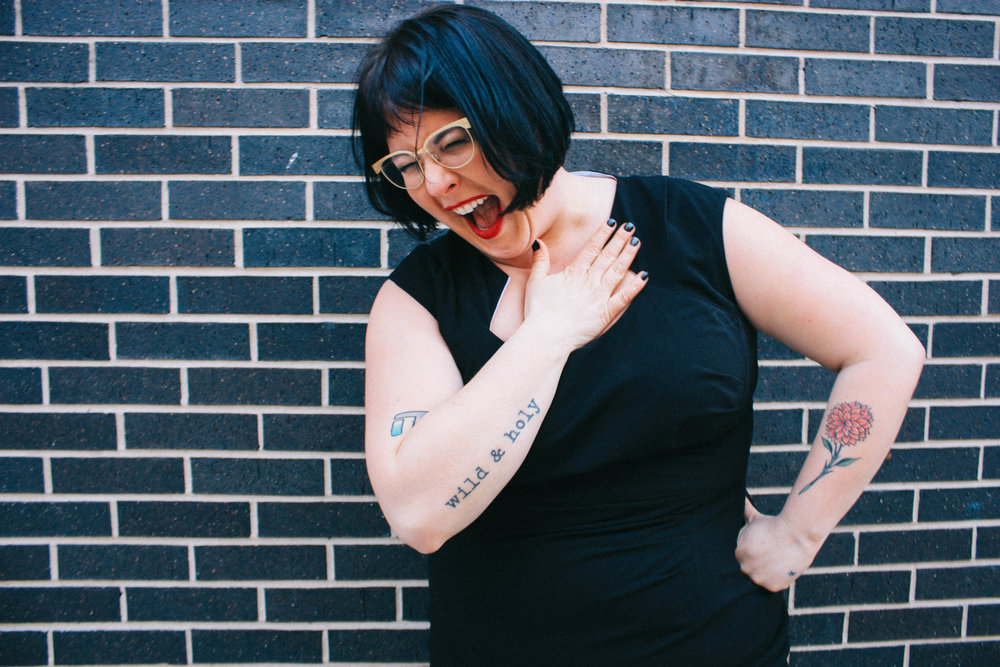
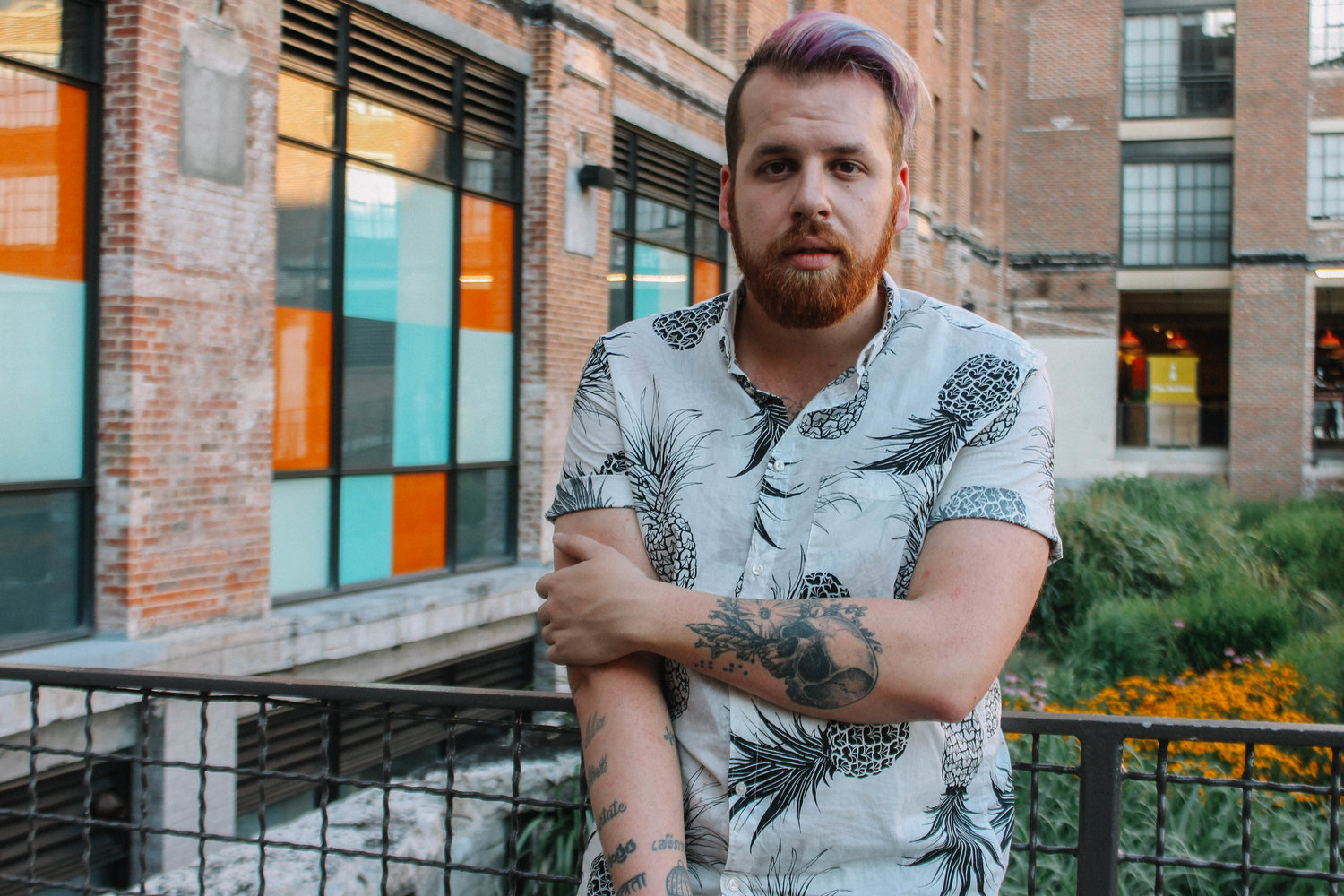
![5]6143158_10209999882132066_5567329358378925915_n.jpg](https://images.squarespace-cdn.com/content/v1/575b394d45bf211e060c93fc/1500384401732-CPSOUH05NVCLQWKNENYC/5%5D6143158_10209999882132066_5567329358378925915_n.jpg)
